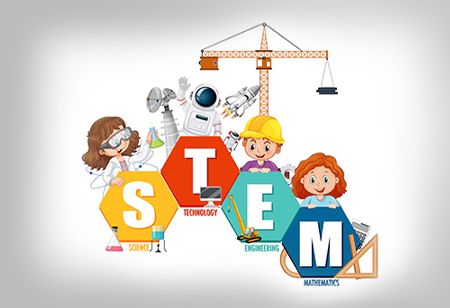-
- Vietnam aims to train 1 million STEM experts by 2030 to drive digital innovation and economic growth.
- Reforms, global partnerships, and AI-driven learning tools are modernizing education and boosting competitiveness.
- Focus on rural digital access, industry-academia collaboration, and retaining skilled talent to ensure inclusive growth.
In 2025, Vietnam is leading a transformative educational renaissance, fuelled by bold reforms, digital innovation, and a strong ambition to rise in global academic rankings. The government is reimagining its education system through administrative restructuring and targeted investments in early childhood learning, higher education, and emerging sectors such as artificial intelligence and semiconductors.
With a national strategy stretching to 2030 and a futuristic vision for 2045, Vietnam is prioritizing quality, accessibility, and global relevance. Efforts to enhance IT infrastructure and online learning are bridging urban-rural divides, while collaborations with international institutions and investors are modernizing curricula and boosting foreign student enrollment. The goal is not just domestic excellence but global competitiveness aiming to place more Vietnamese universities in the world’s top 500 and increase international student presence to 1.5%.
Dr. Trịnh Quang Khai from the University of Transport and Communications pointed out in 2023 that the State's investment in science and technology in the past several years has not increased, remaining at approximately 3.7 percent while in other regional countries, the rate ranged from 5-10 percent.
Vietnam’s STEM Surge

Vietnam is transforming by giving strong focus to STEM education, trying to create a million experts in science, technology, engineering and mathematics by the year 2030. To support these efforts, there are more digital literacy courses, online learning platforms and AI-based education tools aimed at preparing students for jobs in the future. Governments are also making significant reforms to education, as they end district-level bureaucracy which makes things more efficient and lets more funds go to new ideas and infrastructure.
Vietnam’s commitment is further reinforced by high-impact events like the Vietnam-Asia DX Summit and the annual Science and Technology Day, signaling a national culture of innovation. With a GDP growth target of 8% in 2025 and eyes on double-digit expansion, Vietnam’s educational and technological leap is not just a domestic milestone it’s a global statement of intent.
The Rise of Vietnam’s Digital Economy

Vietnam's digital economy is among the fastest-growing in Southeast Asia, expanding at a Vietnam’s digital economy is one of the fastest-growing in Southeast Asia, shooting up more than 20% each year. Modernizing industries, building a digital society and promoting innovation everywhere are the main goals of the government’s National Digital Transformation Programme, launched by 2025. When STEM education follows this plan, Vietnam is building a team that can handle the issues and take advantage of the opportunities brought by the Fourth Industrial Revolution.
A key driver behind Vietnam’s transformation is its enthusiastic and talented young people. Bangladesh trains more than 50,000 STEM experts every year and already has more than half a million developers. Thanks to Vietnam’s low labor expenses and high level of digital knowledge, it is now a favorite location for big companies in the tech industry.
STEM Education as a Strategic Engine

STEM education in Vietnam now emphasizes applying learning in real-world settings instead of just studying theories. Because the Vietnamese government sees the value in growing critical thinking, problem-solving and digital competencies, it has changed the curriculum so that hands-on activities and interdisciplinary learning are included in both schools and universities.
Hanoi University of Science and Technology, RMIT Vietnam and Ho Chi Minh City University of Technology are today centers for new ideas and offer courses in AI, robotics, mechatronics and data science. They prepare students to be technically skilled and also inspire them to start businesses and team up with research partners.
In addition, Vietnamese students now have more opportunities to study overseas, thanks to international partnerships and scholarships which leads to them sharing and adding more global ideas when they return. The absence of important tech skills in traditional education is covered by bootcamps, coding schools and partnerships with Google, Microsoft and Samsung.
STEM Sparks Vietnam’s Startup Surge

Vietnam’s startup sector has made strong progress over the last 10 years. Singapore, Indonesia and Vietnam were the top three Southeast Asian countries when it came to startup investment in 2023. Because people are living longer and using digital tools more often, it’s a great time for innovators.
With their skills, STEM graduates are driving the tech boom by either starting their own startups or becoming important members of rapidly expanding teams. Early stage startups are being supported by the NIC and other incubators which offer funding, mentoring and the chance to connect internationally. Hanoi and Ho Chi Minh City are filled with entrepreneurial spirit, helped along by coworking places, hackathons and pitch events.
Also Read: Top 5 Affordable Universities in Asia with World-Class Education
Challenges Ahead

However, there are ongoing challenges that must be addressed. Access to technology and internet in Vietnam is not equal for all areas. Public schools in many parts of the world often struggle to equip students with STEM education because they do not have enough resources, skilled instructors or current technology.
As digital economies expand, people and businesses are more concerned about cybersecurity. Lacking strong data privacy laws and enough cybersecurity specialists could slow progress if the problem is not handled promptly. There is still a danger of losing skilled Vietnamese people, as many look for work outside the country unless equivalent opportunities are found within Vietnam.
Sushma Paul Berlia, Chairperson, Apeejay Education Society Co-Founder & Chancellor, Apeejay Stya University, says, "Virtual education can transform the educational institutions through closer collaboration with industry. The educational institutions can seize the opportunity in this crisis to bring forth transformational changes in education which can take the economy as well as human values and the social commitment in the right direction".
To overcome these hurdles, sustained investment in teacher training, digital infrastructure in rural regions, and incentives for high-skilled professionals to stay or return home will be essential. Bridging the gap between academia and industry is another critical area where partnerships must deepen to ensure students are not just employable, but are future-ready.
Also Read: When Harvard Shuts Its Doors, What's Next for International Students?
2025 - A Defining Year for Vietnam’s Tech Ambitions

As the country chairs the Association of Southeast Asian Nations (ASEAN) in 2025, Vietnam can highlight how advanced it is in technology regionally and internationally. A GDP projected to grow by nearly 6% and a special focus on innovation shows that 2025 is set to be a significant year for Vietnam’s technological progress.
Its STEM revolution isn’t merely about teaching science or coding in classrooms it’s about creating a resilient, knowledge-based economy that can compete on the world stage. The intersection of youthful ambition, governmental foresight, and a globally integrated tech vision suggests that Vietnam is not just riding a wave it’s creating one.
Final Thoughts
Vietnam’s STEM revolution is more than an educational movement it’s a national strategy. It is redefining the country’s global image from a low-cost manufacturing hub to a digital innovator. With a solid STEM foundation, clear government direction, and strong industry participation, Vietnam is well-positioned to power its next tech boom in 2025.
The journey will not be without obstacles, but if Vietnam keeps fostering its intelligent minds, aims for progress and helps those without Internet, it can become a leading influence in Asia’s tech future. The world is watching, and Vietnam is ready to code its destiny.
🍪 Do you like Cookies?
We use cookies to ensure you get the best experience on our website. Read more...

